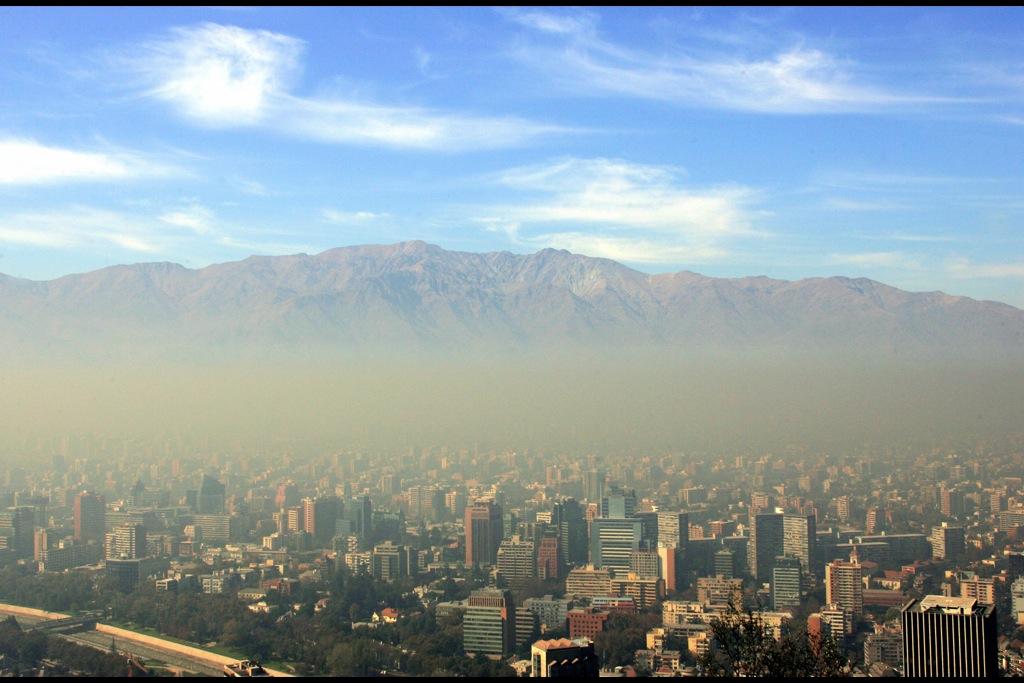Chile is trying a promising approach to cutting air pollution
This 2006 photo shows the city of Santiago, Chile covered in a later of smog.
WASHINGTON — Air pollution can be addressed on many levels, but the best approach is one that is close to the people. Individual countries and localities have proven to be successful in the fight to protect the environment and create jobs at the same time.
The international goal of limiting global warming to two degrees Celsius can be reached. Localities in developing countries have stepped up to the challenge by spearheading changes that work best for them. Dozens of so-called Nationally Appropriate Mitigation Actions, or NAMAs, are being used, increasingly, to cut emissions, promote sustainable development and reduce poverty.
Chile’s groundbreaking Price Stabilization Fund (PSF), which will be enacted soon, is a prime example of how developing countries are mitigating climate change through NAMAs. The Chilean power sector is expected to need an additional 8,000 to 10,000 megawatts of electricity by 2020, an increase of 50 percent in seven years. Meeting this energy demand through additional coal power plamts would increase carbon dioxide emissions by 32 to 40 million tons over current levels.
But Chile is following a different course, enabled under the Renewable Portfolio Law, which requires 10 percent of energy sold in the country by 2024 come from renewable sources. However, the law fails to address financial barriers on price in carrying out renewable energy projects. Because the Chilean power market is deregulated, it is subject to wide fluctuations in price, causing investors to hesitate investing in renewable energy projects.
The PSF project is designed to overcome this barrier by allowing developers to receive long term, fixed-price payment contracts for the sale of renewable energy. It works this way: If the spot price for a renewable project is below the guaranteed price, the difference between the two is paid by all electricity customers, up to a given limit.
This new pricing stability has encouraged Chile to raise its renewable energy goal to 20 percent of power production, a goal it is confident can be met. By avoiding new coal-burning plants, the plan becomes a clean energy solution.
The core principle of NAMAs recognizes that different countries should adopt strategies to reduce pollution based on their own capabilities and needs.
Four fundamental elements contribute to successful NAMAs.
First, they must be driven by the host country and should incorporate moderation of greenhouse gases and encourage sustainable development. Second, NAMAs should be national in scope with roots firmly grounded in a region or municipality. Third, they should include policy changes and financial mechanisms to address barriers to moderating greenhouse gases. Fourth, they must offer incentives for private investment.
Developed countries like Germany and Canada have recognized the potential contributions of NAMAs and are giving grants and technical assistance to developing countries. Germany and the United Kingdom recently established an international NAMA facility and have already committed 70 million euros this year to fund mitigation programs. This initiative could play a prominent role in increasing the effectiveness and sustainability of NAMAs, like the PSF project in Chile.
With support from the Chilean government and the opportunity to seek assistance from the new international NAMA facility, the Price Stabilization Fund is on its way to becoming a successful NAMA. The fund has potential to transform the way Chile reduces greenhouse gas emissions by combating air pollution, reducing the cost of renewable energy and boosting economic and employment growth in the country’s thriving energy sector.
The PSF project is a model for other developing countries. Climate change cannot be solved using an across-the-board, one-size-fits-all method; each individual country and its localities must adopt strategies that work best for them.
These efforts can reduce air pollution and create sustainable development where it is needed most. In the end, everyone will benefit.
Ned Helme is the founding president of the Center for Clean Air Policy. He is an authority on clean air and industrial policy, and serves as an adviser to government officials and corporate executives around the world.
